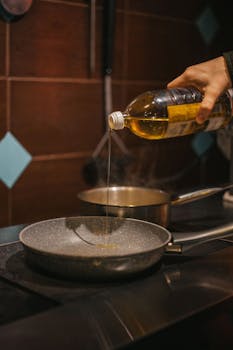Ever caught your cat eyeing a slice of Amy’s Frozen Pizza and wondered if it’s safe to share? While it might be tempting to let your feline friend nibble on your favorite comfort food, it’s important to know what’s actually in that slice and how it could affect your cat’s health. Let’s explore the risks of cheese, toppings, and other ingredients in Amy’s Frozen Pizza so you can make the best decision for your furry companion.
🍕 Can Cats Eat Pizza? What You Need to Know
In short, cats should not eat pizza. While a small nibble of plain pizza crust may not cause immediate harm, many ingredients in pizza can be problematic—or even toxic—for cats. Amy’s Frozen Pizza, like most pizzas, contains cheese, tomato sauce, spices, and various toppings that could upset your cat’s stomach or worse.
Cats are obligate carnivores, which means their diet should primarily consist of meat. Pizza, on the other hand, is loaded with carbohydrates, dairy, and seasonings that aren’t suitable for their digestive systems. Even a single bite of pizza could lead to issues like gastrointestinal upset, food allergies, or exposure to harmful ingredients.
🧀 Cheese: A Risky Treat for Cats
Cheese might seem harmless, but it’s not ideal for cats. Most cats are lactose intolerant, meaning they lack the enzyme needed to properly digest lactose, the sugar found in dairy products. This can lead to digestive problems, including:
- Diarrhea
- Vomiting
- Gas and bloating
Additionally, the cheese on Amy’s Frozen Pizza often contains added salt and fats, which can be unhealthy for cats even in small amounts. Over time, high-fat foods can contribute to obesity and pancreatitis, a serious inflammatory condition affecting the pancreas.
🍅 Tomato Sauce and Seasonings
Tomato sauce is another ingredient that makes pizza unsuitable for cats. While ripe tomatoes themselves aren’t toxic, many pizza sauces include ingredients that can be harmful, such as:
- Garlic
- Onions
- Salt
- Spices
Both garlic and onions are toxic to cats, even in small amounts. These ingredients can damage a cat’s red blood cells, leading to anemia. Symptoms of anemia in cats include lethargy, weakness, pale gums, and loss of appetite. If your cat has consumed any sauce containing these ingredients, contact a vet immediately.
🍖 Toppings: A Mixed Bag of Risks
The toppings on Amy’s Frozen Pizza vary, but many are unsuitable for cats. Common pizza toppings like pepperoni, sausage, and mushrooms can pose serious risks:
- Processed meats like pepperoni and sausage are high in salt and fat, which can lead to dehydration, kidney strain, or pancreatitis in cats.
- Mushrooms, depending on the type, may be toxic to cats. Even non-toxic mushrooms can cause digestive upset.
- Vegetables like onions and garlic, often found in pizza toppings, are highly toxic to cats.
Even if a topping seems safe, it’s best to avoid feeding it to your cat. Many processed foods contain hidden seasonings, preservatives, and additives that aren’t healthy for pets.
🐾 What Happens If Your Cat Eats Pizza?
If your cat sneaks a bite of Amy’s Frozen Pizza, the outcome depends on the amount and type of ingredients they’ve consumed. Here’s what to watch for:
- Vomiting or diarrhea
- Excessive drooling
- Lethargy or weakness
- Loss of appetite
- Signs of dehydration, such as sunken eyes or dry gums
In severe cases, if your cat has ingested toxic ingredients like garlic or onion, symptoms may include difficulty breathing, rapid heart rate, or collapse. If you notice any concerning signs, contact your veterinarian or an emergency animal clinic right away.
🐱 Safer Treat Alternatives for Cats
Instead of sharing your pizza, consider offering your cat a safer, healthier treat. Here are some feline-friendly options:
- Cooked, unseasoned chicken or turkey
- Plain, cooked fish like salmon or tuna
- Commercial cat treats designed for their dietary needs
- Small amounts of catnip as a fun, non-food treat
These options provide the protein your cat needs without the risks associated with pizza ingredients. Always introduce new foods gradually and in moderation to avoid digestive upset.
🩺 When to Call the Vet
If you’re unsure whether your cat has eaten something harmful, it’s better to err on the side of caution. Contact a vet if:
- Your cat shows any symptoms of illness after eating pizza
- You know they’ve consumed a toxic ingredient like garlic or onion
- They’re refusing food or water
A vet can assess your cat’s condition and recommend the appropriate treatment. In some cases, prompt medical intervention can prevent serious complications.
FAQs
Can cats eat plain pizza crust?
A small piece of plain, unseasoned pizza crust is unlikely to harm your cat. However, it doesn’t provide any nutritional value and could contribute to weight gain if given regularly.
Is mozzarella cheese safe for cats?
While mozzarella is lower in lactose than some other cheeses, it can still cause digestive upset in lactose-intolerant cats. It’s best to avoid giving your cat cheese altogether.
What should I do if my cat eats pizza?
Monitor your cat for any signs of illness, such as vomiting, diarrhea, or lethargy. If you suspect they’ve consumed a toxic ingredient, contact your vet immediately.
Are vegan pizzas safer for cats?
Not necessarily. Vegan pizzas often contain ingredients like garlic, onions, and spices that are harmful to cats. Always check the ingredient list before sharing any food with your pet.
References
Book a $49 online vet consultation at https://www.dialavet.com for fast, expert advice.























